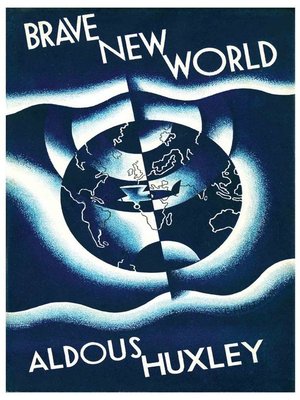

Huxley was also prescient about where sexual morality was heading (remember that this was written before the pill and the sexual revolution of the 1960s), and he foresaw the diminishing of marriage. The Church needs to resist this attempt by the state to recreate humanity in its own image. They will also need to use eugenics as a means of standardising the human product. He talks about how governments will need to offer economic security and use drugs, as well as create a pre-conditioned status for its citizens. The Church should make people question and challenge, so that we will recognise the illness and accept the remedy. The state wants to make us content and silent so that we will not question. They know nothing different and need to be shaken out of that soporific complacency. But in much of modern society, people are bound in sin, but are happy to be that way. One of the problems in Christian evangelism is that we too often assume that people are basically unhappy and are just longing for a way out. "The most important Manhattan projects of the future will be vast government sponsored inquiries into what the politicians and the participating scientists will call 'the problem of happiness' - in other words, the problem of people making people love their servitude." The greatest problem facing the Christian church today is not that our message is rejected but that it is not heard. Sometimes it is not so much what we discuss but what we do not or are not permitted to discuss. Great is the truth, but still greater, from a practical point of view is silence about truth." That sounds eerily familiar! How will we love our servitude? Not just by the kind of propaganda Orwell wrote of in 1984 but by silence: "The greatest triumphs of propaganda have been accomplished, not by doing something, but by refraining from doing. He then explains how "a really efficient totalitarian state would be one in which the all-powerful executive of political bosses and their army of managers control the population of slaves who do not have to be coerced, because they love their servitude." The Church at its best has always recognised that. He recognises that: "This really revolutionary revolution is to be achieved, not in the external world, but in the souls and flesh of human beings." Huxley explains that his novel is about the advancement of science as it affects others. Here are some quotes and lessons I hope we can learn for the church. It is a revealing and astounding addition because much of what he shares in it we can see happening today – 85 years later. Recently I came across Huxley's 1946 introductory essay to his book. This book, written in 1932, foresaw a 'soft totalitarianism' of absolute government where conformity was enforced, as Margaret Attwood summarises it, by bio-engineering, hypnotic persuasion, endless consumption, state encouraged sexual promiscuity, drugs and a caste 'class' system where everyone fulfils their pre-ordained function.

But there is another secular 'prophet' who in my view was astonishingly prescient and that is Aldous Huxley, the author of amongst other books, Brave New World. Looking back, I see CS Lewis, Francis Schaeffer and today, Os Guinness, as Christian prophets who saw where we were going and accurately predicted the state we have now found ourselves in. I am amazed that it is secular commentators like Jordan Peterson and Doug Murray who seem to have a better grasp of the bigger picture than many Christian ones. He is also able to teach us through those who are not his people. We need to constantly remind ourselves that the Lord is sovereign and can even use what men meant for ill, to bring about good (as we see for example with Joseph's brothers). In today's world of Covid, vaccine passports, police raiding churches, endemic sexual abuse, gender confusion, disillusionment with government, there can be a temptation for the Christian to either despair and retreat, or despair and end up fighting the wrong battles. What is happening in the world? Sometimes we stand so close that we cannot see the bigger picture.


 0 kommentar(er)
0 kommentar(er)
